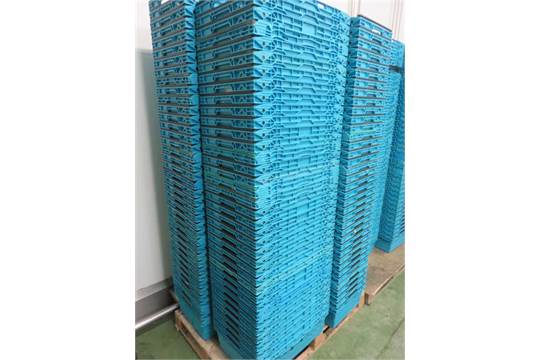Why Our Supply Chains Rely Heavily On Plastic Pallets
24 Sep 2018
With the focus so much on plastic recycling, it is sometimes difficult to remember that there are plenty of times when plastic is necessary and valuable to businesses, industry and the economy as a whole. One example is the supply and logistics industries. Let’s look at how plastic pallets offer a better solution for supply chains than wooden alternatives.

Industries that are involved in supply and logistics need to have reliable pallets in order to pack and secure items that are ready for transportation. They will be used at various stages according to needs. For example, pallets may be used at the factory floor to remove products from the supply chain and transport them to the warehouse, and then be used for packing and loading onto lorries for onward transportation to middle dealers or end retailers. Pallets are needed by manufacturers, exporters, retailers, food handlers, wholesalers, freight operators, shipping agencies and a whole array of other industries for myriad product transportation instances. Their value is undeniable, and pallets have been used in various forms for hundreds of years.
The Use of Plastic Pallets in Supply Chains
Plastic pallets are still extremely popular across all supply chains, from manufacturing through to retail, for a number of reasons. These include the following:
Reliability
Plastic pallets offer a structurally strong and reliably secure physical base from which products can be moved through the supply chain without delays or damage. When compared to wooden pallet alternatives, plastic pallets are more resistant to the effects of physical movement and better able to withstand potential damage. By better staving off damage from bumps, drops and collisions, for example, delays in the supply chain are minimised.
Consistency
Effective supply chain management requires all elements within the operation to be reliable and consistent – even down to the choice of physical shipping platform. This is another reason why supply chain operators still prefer robust, reliable and consistent plastic pallets.
Precise Loading
Plastic pallets can be loaded precisely in a way that wooden pallets cannot. Wooden alternatives also have unstable dimensions so are less suited for rigorous and high-pressure industrial and commercial environments – they also can shrink in heat or expand in the rain, making them incompatible with many modern digitised loading systems, which rely on consistency and precision. The lighter weight of plastic pallets also helps to lower energy costs, reduce health and safety incidents from staff lifting and moving, allow faster, safer and more efficient loading and also improve interoperability.
Hygiene
Plastic pallets are also naturally hygienic and able to withstand the weather. Compare this to wooden alternatives, which can become damaged by rain and frost and which may attract mould if they are untreated or left in the open. The absorbent nature of wood also means that bacteria and moulds can become present on the loaded products themselves and lead to the broader supply chain being halted to identify the cause of the problem and to destroy damaged goods.
So with today’s supply chains looking for ways to operate successfully, cost-effectively and without waste or safety incidents, the considered use of multi-use plastic pallets and the growth of recycled options look set to increase, offering benefits to the end-customer as well as the businesses that ship to them.
